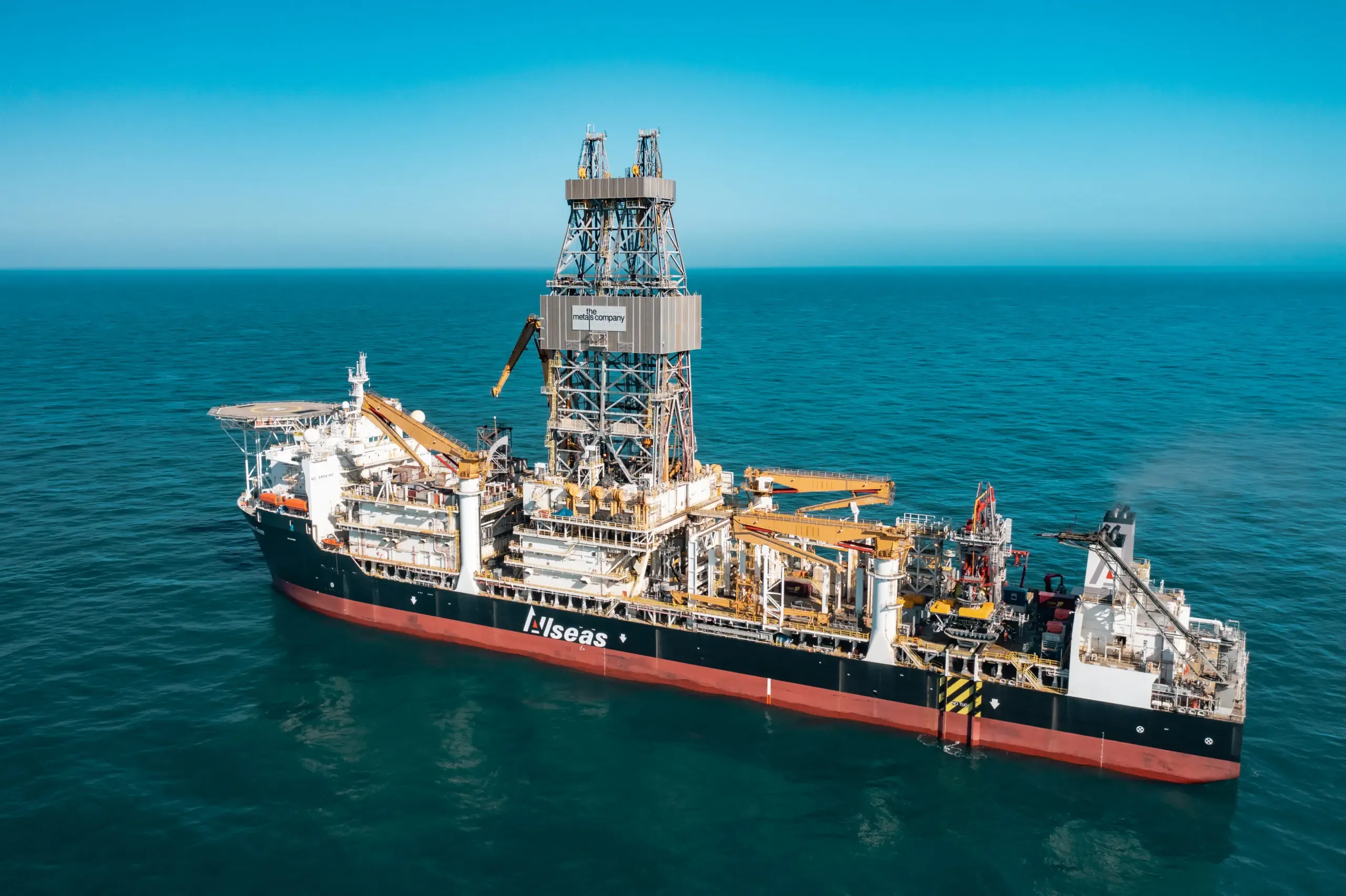Deep Sea Mining: An Obsolete and Absurd Gamble in a New Battery Age
Its crushing pressures and impenetrable darkness made it inaccessible to scientific exploration until technological advancements only recently opened a window to an environment we now know to be rich in biodiversity, as well as a critical component in the planet’s climate system.
But just as improvements to submersibles have enhanced our understanding of life on the seafloor, mining innovations have brought its vast deposits of cobalt, nickel, and other materials used to make batteries for the booming renewable energy sector within reach—threatening to irreparably damage an ecosystem that all evidence suggests is critical to our survival.
Led by The Metals Company, based in Canada, the fledgling industry has portrayed itself as essential to cutting the carbon dioxide emissions responsible for climate change—some would say putting efforts to limit carbon at odds with those working to protect critical seafloor ecosystems.
However, the idea that deep-sea mining is needed to facilitate a green energy transition is quickly losing credibility. In the United States alone, billions of dollars are being invested in pioneering battery chemistries that replace high-cost and environmentally questionable metals sourced three miles beneath the ocean’s surface.

The market share of batteries that do not rely on minerals found in the ocean is growing exponentially. According to a 2024 International Energy Agency (IEA) report, over the last five years, the Lithium Iron Phosphate (LFP) battery has moved from a minor share to the rising star of the battery industry, supplying more than 40% of EV demand globally by capacity in 2023, more than double the share recorded in 2020. This is signaling a broader trend away from the need for deep-sea minerals at all. For example, companies like BYD, CATL in China, ElevenEs’s in Europe, or Ford and American Battery Factory in the US, are spearheading the shift towards Lithium Iron Phosphate (LFP) batteries that are free of Nickel and Cobalt. According to industry research (CRU), LFP today represents over 70% of the Chinese EV market and continues to increase despite lower, recent prices for NMC materials. In China, LFP dominates the entry-level BEV market due to its significant cost and safety advantages, and is expanding its presence in mid- and long-range vehicles thanks to advancements in fast charging and energy density. Globally, 52% of battery production across all applications combined had already shifted to LFP by 2023 according to CRU. Without a need for cobalt and nickel, the rationale to need to mine the seafloor to support EV growth, disappears.
Key deep sea mineral commodity prices have collapsed. Cobalt and Nickel remain at multi-year lows despite dramatic increases in EV production. The IEA recently noted that investments in terrestrial mining and refining over the past five years have ensured that global supply can comfortably meet today’s and even future demands.
The financial outlook for deep-sea mining is increasingly bleak. Record interest rates have dramatically raised the industry’s financing costs, and, contrary to initial projections, labor and capital equipment expenses have surged faster than at any rate since the 1980s. The Metals Company has failed to revise its original 2021 financial projections, and thus its projected profitability, in light of these key developments. It has also faced a Securities and Exchange Commission investigation and an ongoing class action lawsuit by investors.
In the face of these headwinds, The Metals Company has hired powerful DC lobbyists to help prop up its floundering business with taxpayer and diplomatic support. In March, two House Republicans introduced legislation designed to provide financial and diplomatic assistance for the deep-sea mining industry. The same day, a letter from former government and military leaders, including Hillary Clinton and Leon Penetta, urged Senate leaders to reconsider ratifying the U.N. Convention on the Law of the Sea (UNCLOS), lest it cede access to strategic deep-sea resources to China.
But this is another fallacy pushed by the industry. The source of the metal ore – where one gets it – is not the problem, it is where they are processed that creates foreign dominance of the supply chain. By sourcing metal ore from diverse global suppliers, such as Australia, Canada, and the Philippines, as well as prioritizing domestic or allied-nation processing, larger markets such as the United States can effectively mitigate foreign dependence without resorting to spectacularly expensive, technically untried at scale, and environmentally destructive seafloor mining operations. This diversification also destroys the false narrative that it can either save precious forests or the seabed: we can and must conserve both.
Like so many costly ventures before it, the cheery prospects for deep-sea mining are little more than a mirage, sustained by corporate inertia, public handouts, and overly optimistic (if not fraudulent) assumptions, as well as a reluctance to confront economic realities that have substantially worsened in the last three years. Even under TMC’s proposed full production rates, it would produce just 3% of the total 2024 forecasted global nickel production. Seafloor mining will not materially curtail terrestrial mining for nickel and cobalt, as proponents claim.
It is time to cut off public and private investment in the industry. The UN-affiliated International Seabed Authority (ISA) is attempting to finalize regulations on deep-sea mining in some of the deepest and most remote parts of the world, like the Clarion-Clipperton Zone, an expansive area of seabed between Mexico and Hawaii that is rich in marine life, many species of which are still to be discovered by science.
Fortunately, over 30 countries, including Canada, Germany, France, Mexico and the UK, have called for a moratorium, pause or ban on deep-sea mining. What’s more, nearly 50 companies including several leading car manufacturers and 15 financial institutions, such as Google, Samsung, BMW, Volkswagen, along with major International Organizations, fishing interests, battery manufacturers, indigenous groups, and thousands of climate and youth activists have also come out against the industry.
Deep-sea mining has no place in a sustainable future. It is extremely expensive to undertake, technically untried and risky, technologically vulnerable to substitution, and is the solution to a metal ore supply problem that existed ten years ago, not today and certainly not in the future. Oh, and it will undeniably obliterate anything living on or near the seafloor, with the potential for widespread impacts throughout the ocean. It’s time to heed the call for restraint and commit to protecting the world’s largest, still mostly untouched environment that belongs to all of us.

Daniel Kammen is the James and Katherine Lau Distinguished Professor of Sustainability at the University of California, Berkeley. He has served as Science Envoy in the Obama Administration and Senior Advisor at USAID for Energy and Innovation in the Biden Administration. Kammen has been a Coordinating Lead Author for the IPCC. Follow Daniel on LinkedIn.
Victor L. Vescovo is a deep marine explorer and technology developer who has personally explored 17 deep ocean trenches. He served 20 years in the US Navy Reserve and holds degrees from Stanford University, the Massachusetts Institute of Technology and graduated as a Baker Scholar from the Harvard Business School. Follow Victor on LinkedIn.
Jeanne Everett is an Advisor Board member to the Innovation Zero World Congress 2025. She is a steering committee member of the Blue Climate Initiative, a program endorsed by the UN Ocean Decade, and co-author of the 2023 white paper Next Generation EV Batteries Eliminate the Need for Deep Sea Mining. Civil engineer by training, she holds an MBA from the Ecole Nationale des Ponts et Chaussées in Paris, France. Follow Jeanne on LinkedIn.



